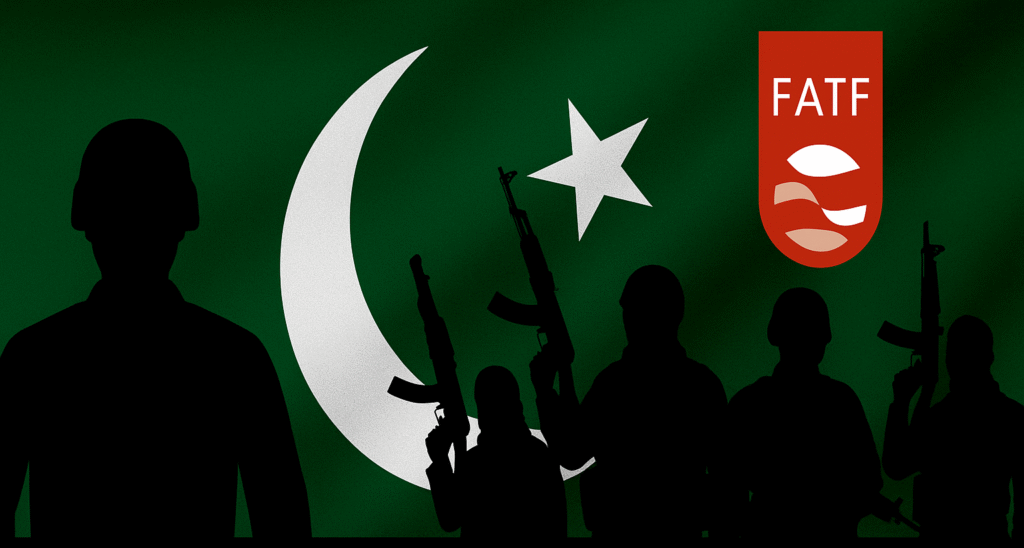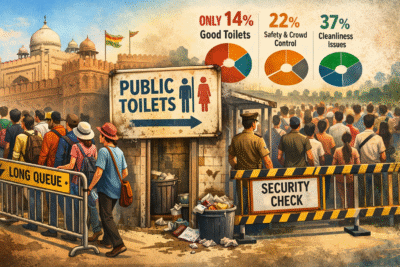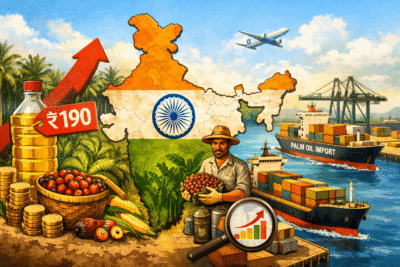
In a landmark move, the Financial Action Task Force (FATF) has, for the first time, explicitly acknowledged the role of states as sponsors of terrorism in its 2025 report on terrorist financing risks. This development significantly bolsters India’s longstanding campaign to hold Pakistan accountable for enabling and financing cross-border terrorism.
The FATF report states that “certain terrorist organisations have been and continue to receive financial and other forms of support from several national governments.”
This recognition of state sponsorship as a major risk in global terror financing marks a turning point in the international approach to combating terrorism.
According to a senior Indian government official, cited in media reports, “The findings of the FATF reinforce India’s position as, for the first time, it has introduced the concept of state sponsored terrorism in its report.
Pakistan-based groups under the scanner
The FATF report highlights the activities of Pakistan-based terror outfits such as Lashkar-e-Taiba (LeT) and Jaish-e-Mohammed (JeM). These groups have been found using non-profit organisations (NPOs), banking channels, and online platforms to raise, store, and move funds for terrorist activities.
The report notes: “Sham NPOs are established or registered knowingly for the purpose of terror financing and used to raise, store and move funds, commonly under false charitable pretexts.”
It also raises concerns about the increasing use of gaming websites and e-commerce platforms by terror outfits to procure materials and transfer funds
Case studies: Pulwama, Gorakhnath, and beyond
The FATF document cites concrete examples to illustrate how terror financing networks exploit digital tools and state support. One such case is the 2019 Pulwama suicide attack in India’s Jammu and Kashmir, orchestrated by Jaish-e-Mohammed, where explosives were procured through the e-commerce platform Amazon.
Another example is the 2022 Gorakhnath Temple attack, where an individual influenced by ISIL ideology transferred nearly Rs 6.7 lakh ($7,685) via PayPal to foreign countries in support of ISIL, using VPNs to obscure transactions. These case studies reveal how terrorists leverage modern financial technologies, often under the radar of authorities, to fund and execute attacks
State-backed terror: A global threat
The FATF report underscores that the possibility of states providing financial or other forms of support to terrorist organisations is a “longstanding threat to international peace and security, as well as to the stability of regional financial and political systems.”
It further warns that such state sponsorship undermines the effectiveness of global anti-terror financing efforts.
The report also points out that criminal and terrorist organisations thrive in states with ineffective legal and institutional frameworks, systemic corruption, and high levels of criminality—conditions that are prevalent in Pakistan, as repeatedly highlighted by Indian authorities
India vindicated
For India, the FATF’s explicit mention of state sponsorship of terrorism is a diplomatic breakthrough. Indian officials have long argued that Pakistan provides safe haven and financial support to UN-listed terror groups, and the FATF’s findings now reinforce these claims on a global platform.
While the FATF report does not directly name Pakistan as a state sponsor, the references to Pakistan-based groups and their methods leave little ambiguity.
This strengthens India’s case for international action, including the possible relisting of Pakistan on the FATF “grey list” and increased scrutiny of its financial system
What after FATF report
The FATF calls for enhanced international cooperation, stricter oversight of non-profit organisations and digital financial platforms, and robust regulatory frameworks in high-risk jurisdictions. It also urges countries to protect legitimate humanitarian activity while countering the abuse of such channels for terror financing.
As the global community digests these findings, the pressure is likely to mount on states that enable or turn a blind eye to terrorism.
The FATF’s 2025 report is expected to influence future decisions on sanctions, aid, and diplomatic relations, marking a new chapter in the battle for global security
In nutshell
The 2025 FATF report is a watershed moment in the global fight against terrorism financing. By formally recognizing state sponsorship as a core risk and documenting the methods used by Pakistan-based groups, the FATF has provided India — and the world — with new tools to demand accountability and action.
With Pakistan’s record now under unprecedented global scrutiny, the call for decisive international measures has never been louder.



